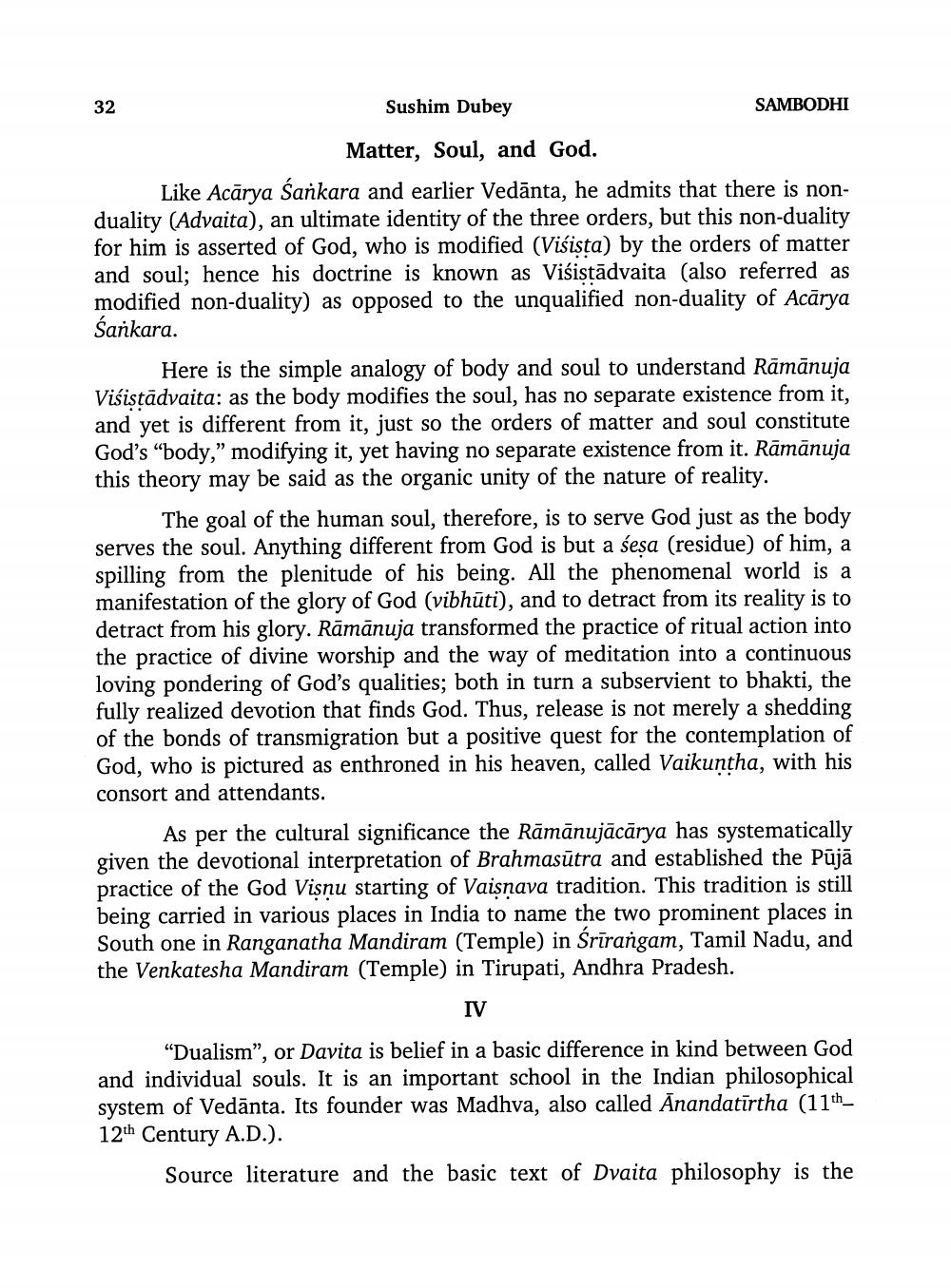________________
32
Sushim Dubey
SAMBODHI
Matter, Soul, and God. Like Acārya Sankara and earlier Vedānta, he admits that there is nonduality (Advaita), an ultimate identity of the three orders, but this non-duality for him is asserted of God, who is modified (Visista) by the orders of matter and soul; hence his doctrine is known as Viśistādvaita (also referred as modified non-duality) as opposed to the unqualified non-duality of Acārya Sankara.
Here is the simple analogy of body and soul to understand Rāmānuja Visistädvaita: as the body modifies the soul, has no separate existence from it, and yet is different from it, just so the orders of matter and soul constitute God's "body,” modifying it, yet having no separate existence from it. Rāmānuja this theory may be said as the organic unity of the nature of reality
The goal of the human soul, therefore, is to serve God just as the body serves the soul. Anything different from God is but a sesa (residue) of him, a spilling from the plenitude of his being. All the phenomenal world is a manifestation of the glory of God (vibhūti), and to detract from its reality is to detract from his glory. Rāmānuja transformed the practice of ritual action into the practice of divine worship and the way of meditation into a continuous loving pondering of God's qualities; both in turn a subservient to bhakti, the fully realized devotion that finds God. Thus, release is not merely a shedding of the bonds of transmigration but a positive quest for the contemplation of God, who is pictured as enthroned in his heaven, called Vaikuntha, with his consort and attendants.
As per the cultural significance the Rāmānujācārya has systematically given the devotional interpretation of Brahmasūtra and established the Puja practice of the God Visnu starting of Vaisnava tradition. This tradition is still being carried in various places in India to name the two prominent places in South one in Ranganatha Mandiram (Temple) in Srirangam, Tamil Nadu, and the Venkatesha Mandiram (Temple) in Tirupati, Andhra Pradesh.
IV
“Dualism”, or Davita is belief in a basic difference in kind between God and individual souls. It is an important school in the Indian philosophical system of Vedānta. Its founder was Madhva, also called Anandatīrtha (11th_ 12th Century A.D.).
Source literature and the basic text of Dvaita philosophy is the




